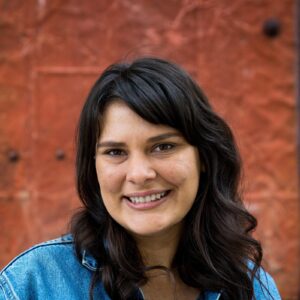
Forests and Community Program Director
photo credit: Sean Gutierrez
Staff members Stephanie Gutierrez and David Diaz visited the Swinomish Reservation this past week to gather with tribal members and partake in a traditional clambake.
Gravel cracked under tires as we drove to the southeastern corner of Fidalgo Island, Washington. We were greeted at a gate by a woman who gave us directions out to Lone Tree, a culturally significant place for the Swinomish Indian Tribal Community. Stepping out of the car, trees breathed a cool mist, a nice reprieve from the wildfire smoke that had blanketed much of the Pacific Northwest the past few weeks.
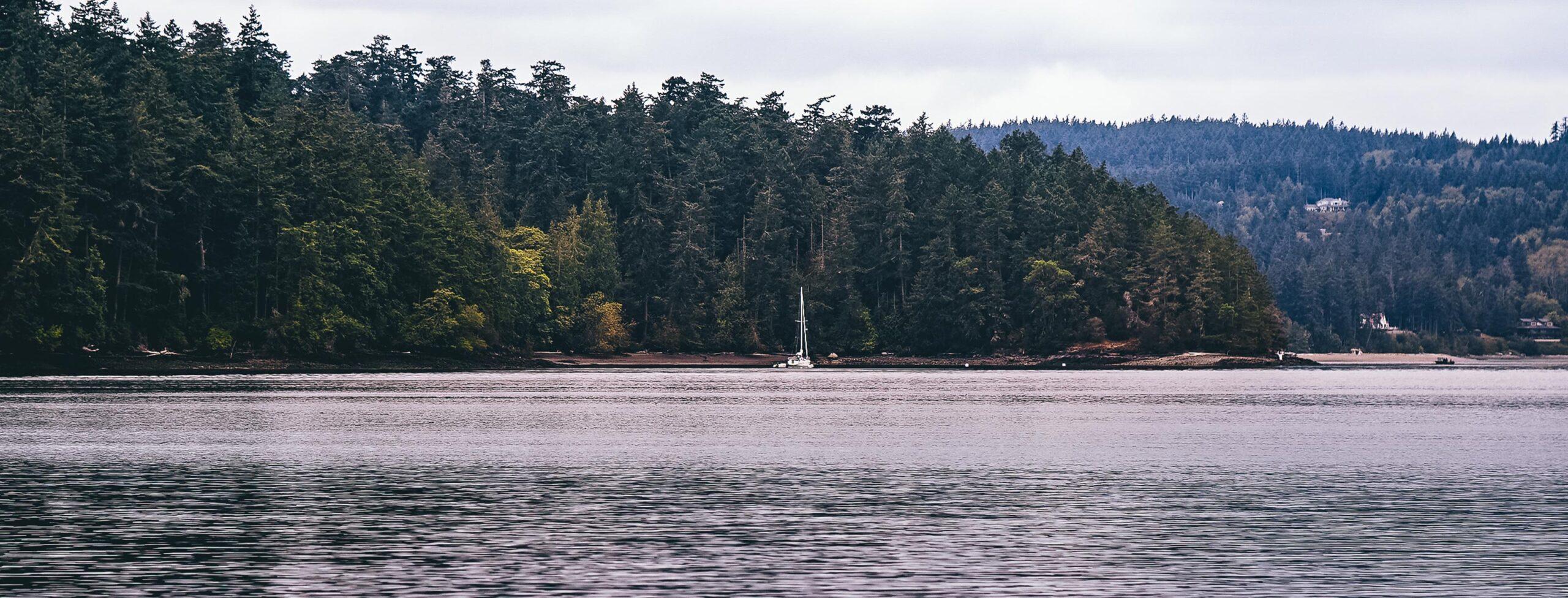
photo credit: Sean Gutierrez
It’s been a little over six months since I started working with Ecotrust’s Forests & Ecosystem Services team. I joined the team in February through Ecotrust’s Indigenous Fellowship program and quickly began work collaborating with the Swinomish Indian Tribal Community. Ecotrust and the Tribe have been collaborating since 2015 on updating the Swinomish Forest Management Plan to emphasize climate change adaptation, habitat protection and restoration, and community-based decision making. The Tribe and Ecotrust continue to work together to ensure the Plan is truly community-based by seeking out feedback from community members and increasing opportunities for the community to engage with their forests.
Little else brings communities together more than preparing and sharing food. For the Swinomish Tribe, first foods include shellfish, salmon, berries, and other forest offerings. Each year, the community gathers for a traditional clambake at Lone Tree, and we are incredibly grateful to have been invited, with the community, to attend this year.
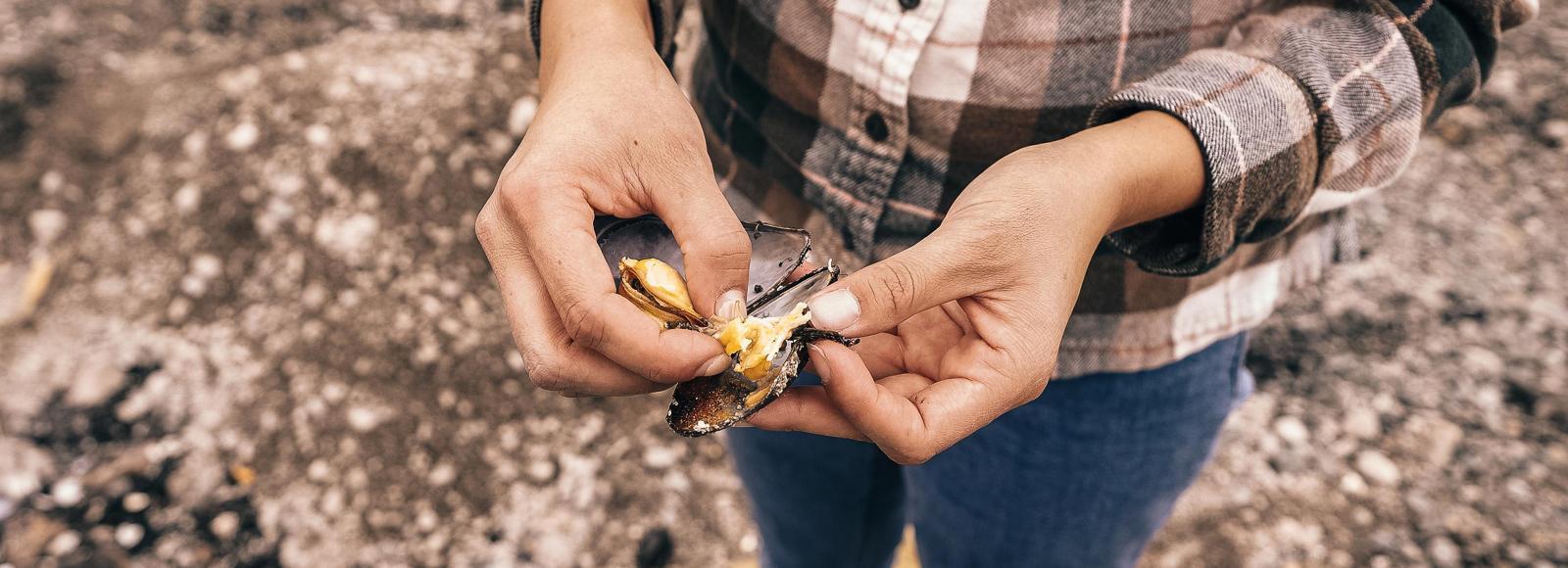
Photo credit: Sean Gutierrez
When we arrived, the shellfish, which included clams and mussels, had been traditionally prepared in a pit out by Lone Tree. The coals were still warm when we walked down to take a look and a few elders invited me to eat the shellfish straight off the coals.
At the Swinomish clambake, we broke bread, fry bread that is, with Tribal Senators, staff, and community members. We talked over traditionally baked clams and mussels, salmon, and corn.
Most importantly, we listened. We listened to elders and adults in the community about their forests, first foods, the importance of getting the kids more involved, and how we can work together towards our common goals. Our conversations left us inspired, motivated, and connected to our work and the community.
“
Most importantly, we listened.
We said goodbyes with gratitude, and began our drive to look at the diverse forest structures on the reservation. In some areas maple had sprung up to cohabitate with understory shrubs and ferns, while in others we found young cedar lending complexity to a stand.
Each time we visit, there’s something new and different, but what’s constant is an air of resilience in the Swinomish forests. There’s the flicker of life and a reminder of the interconnectedness of it all.
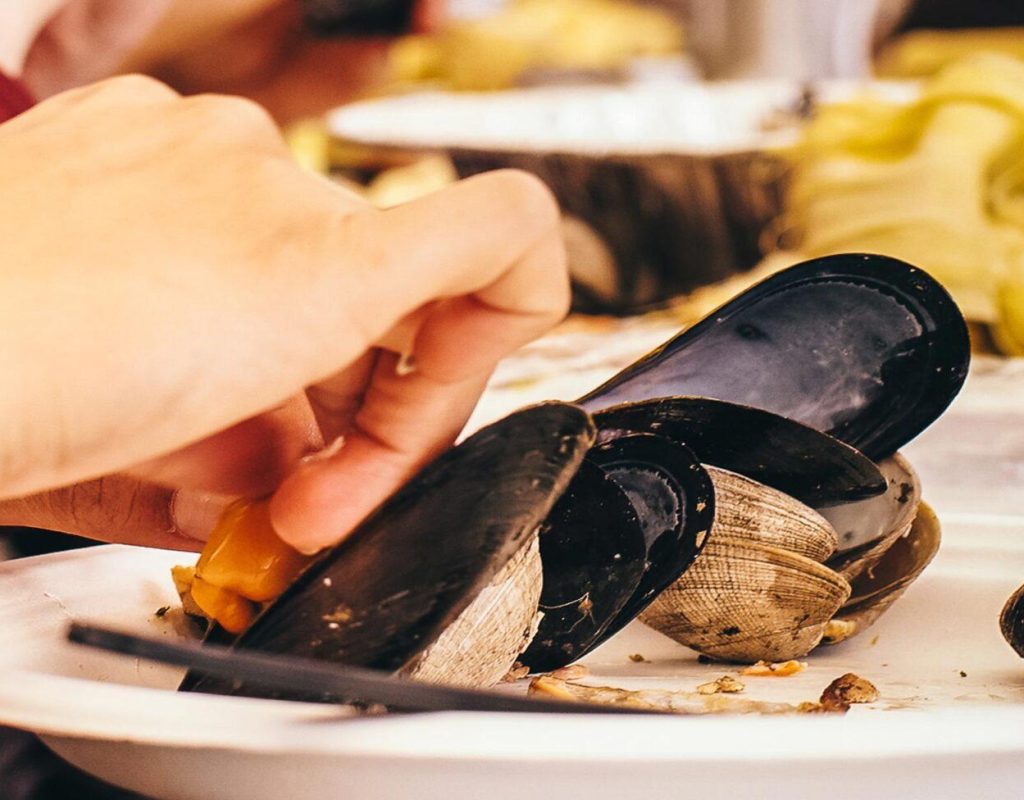
Photo credit: Sean Gutierrez
Although my fellowship is coming to end, I’m excited about the road ahead and continuing my tribal forestry and education work with Ecotrust. I’m looking forward with gratitude to where my journey has led me and where the road may lead not just for me, but for future generations as well.
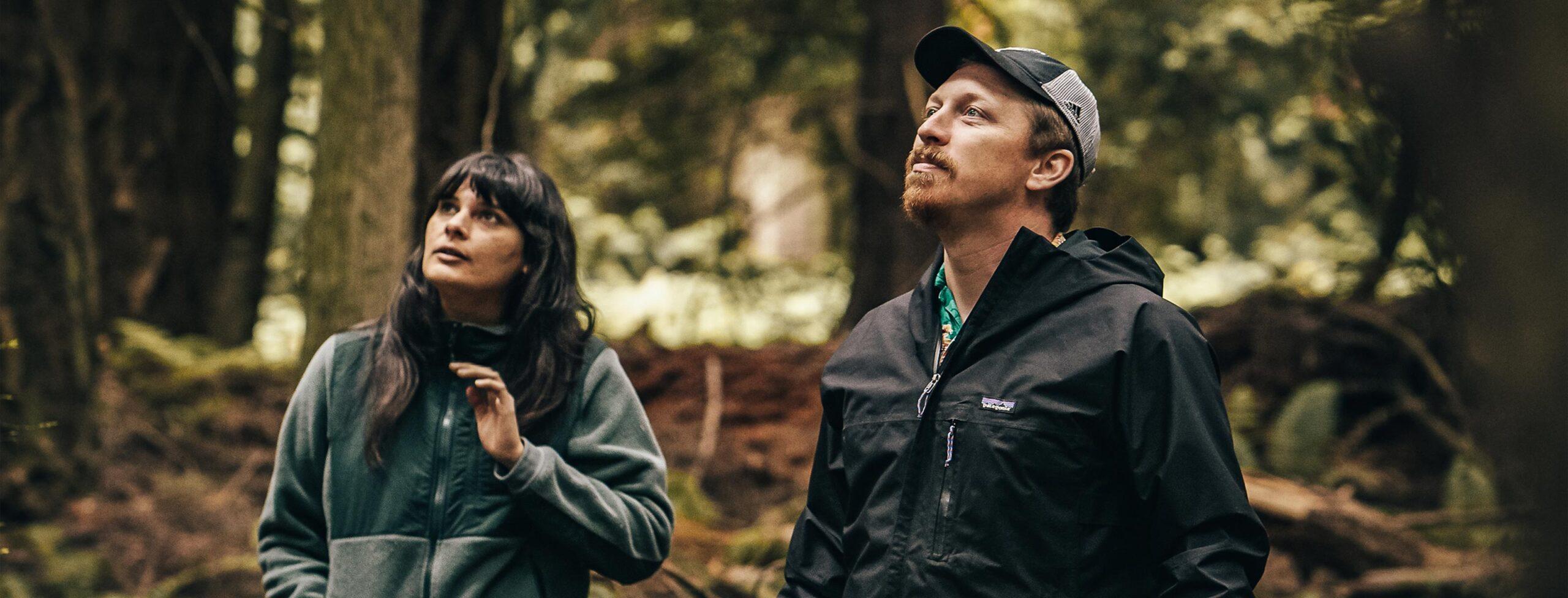
photo credit: Sean Gutierrez

website
“The Swinomish Indian Tribal Community is not a big tribe, nor is our community a large community, but our people have the same needs, hopes, and dreams as all communities throughout the world.”